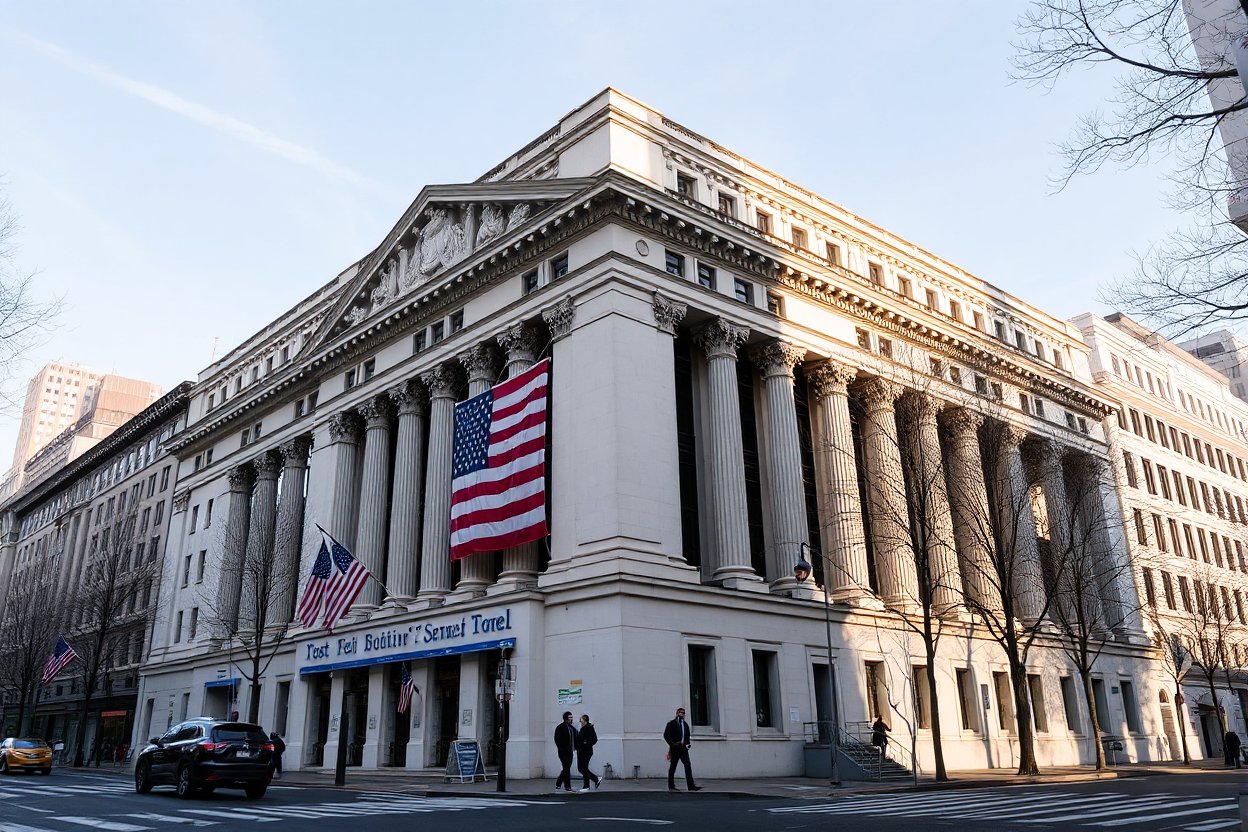Dow Jones Futures Drop Sharply as White House Increases China Tariffs, Spooking Investors and Markets Worldwide
The day of April 8, 2025, will forever be remembered as the day when the American financial markets were in significant disorder, as the White House gave the go-ahead for an open war with China. At the beginning of the decision, the market took a hit. It ended with a substantial negative gap, a complete 180 from the initial stages that featured an extraordinary run-up.
Enthusiasm Wanes as Trump Delivers Bad News Due to Tariffs
The morning of the trading day was opened by stockholders who deemed the proceedings very positive. Moving forward, the Dow Jones Industrial Average index shot up more than 1,400 points in absolute terms of the first hours of the session. However, the good sentiment was quickly replaced with a negative turn of events. Initially, this was due to the White House’s decision to retaliate against China’s 34% import tax on US goods with a 50% tariff of their own, which made the market burst into tears as the losses amounted to 320 points, with the Dow ending at 37,645, in a day when there was no such big move, the first time in a long time, it was a decline.
Market Movement on Major Indices and Top Stocks
Not only did the S&P 500 and Nasdaq Composite fail to maintain their gains, but they also both saw their percentage numbers fall by a large margin. The S&P 500’s intraday increase of 4.05% was removed entirely, as it dropped 1.6%, a price flip of such a scale not seen since at least 1978. The Nasdaq went from 4.6% up to 2.15% down. It’s been a tough time for the stock of those two tech companies. The drop in the price of Apple shares to an eleven-month low and the fall of Tesla due to the fear that the tariffs would cripple the two companies Bear a double whammy of the shares of the two tech giants.
Dow Jones Futures Reflect Market Anxiety
After the tariffs were announced, Dow Jones futures went to zero, showing that investors were not only anxious but worried. This adverse future market reaction indicates the hidden factor in the escalating trade dispute between the US and China. The decline in Dow Jones futures indicates investors’ apprehension at the impact of the tariffs on the economy and the prospect of a full-on trade war.
Treasury Yields and Inflation Concerns
The announcement of new trade tariffs made the bond market face a considerable backlash. The US’s 20- and 30-year Treasury bond yields burst up 37 points in two days, the most laborious rise in over 40 years, excluding pandemics. The most suitable reason for such a change in Treasury security yields is the increased inflation prospects and the suffocation of US foreign investors’ confidence. Although the operations of the Treasury in the yields have been good, they still face challenges in the inflation and the current political environment.
Global Implications and Reflation Scenarios
By increasing tariffs, the recession period is a hard fact, and now it is even more of a global recession than before. As former US Treasury Secretary Lawrence Summers, a recession, and hence the loss of two million American jobs, is bound to happen. The drastic response of China, including the ban on US films, may result in various links to manufacturing and the technology sector. This is one of the most significant implications of such a move.
Investor Sentiment and Market Outlook
All the uncertainty has been generated due to the drastic political changes and the rising of tense geopolitical situations. Investors do not feel safe and secure about their future earnings; they are very worried about the economic impact of the trade conflict and the subsequent onward pull of a possible market cycle. Market analysts suggest people should be vigilant, watch for happenings, and avoid making hasty decisions. The current state can lead to a situation where markets change dramatically, and several other economic difficulties occur.
Conclusion
The aggressive response by the White House to re-empower China tariffs has hit the stock markets almost immediately and hard. The numerous notable changes in the major equity indices with the US dollar markets before the market opens, Dow Jones futures, and increased Treasury yields have confirmed the market’s reliance on trade policy. With the potential formation of the world trade regime and the deep integration of the national economy, there are emerging challenges for both investors as well as policymakers,


